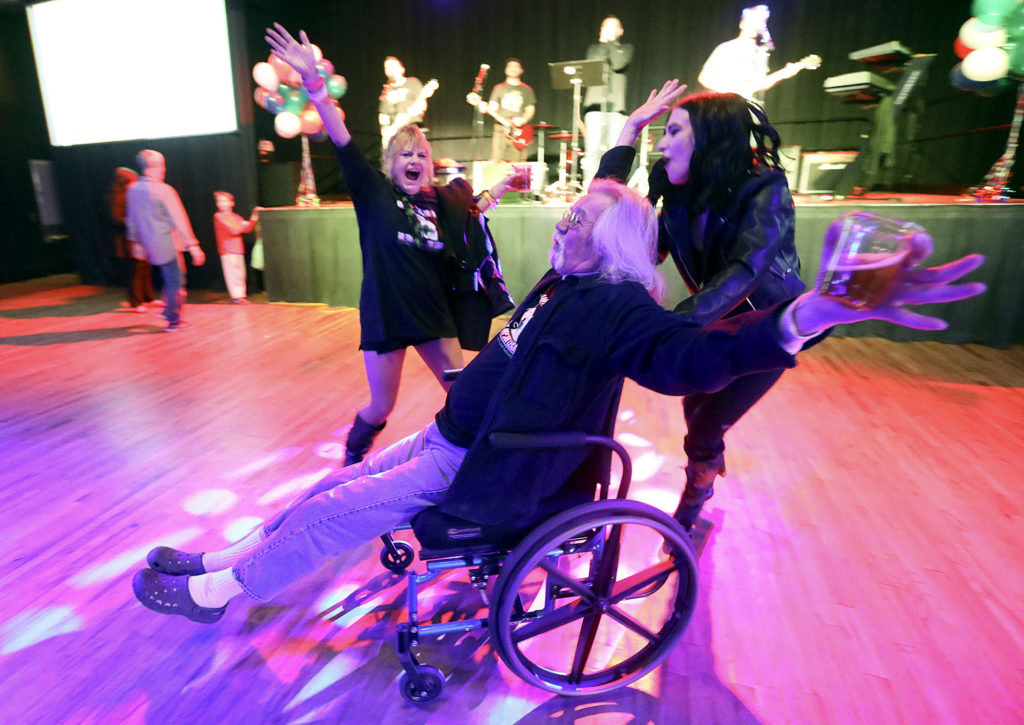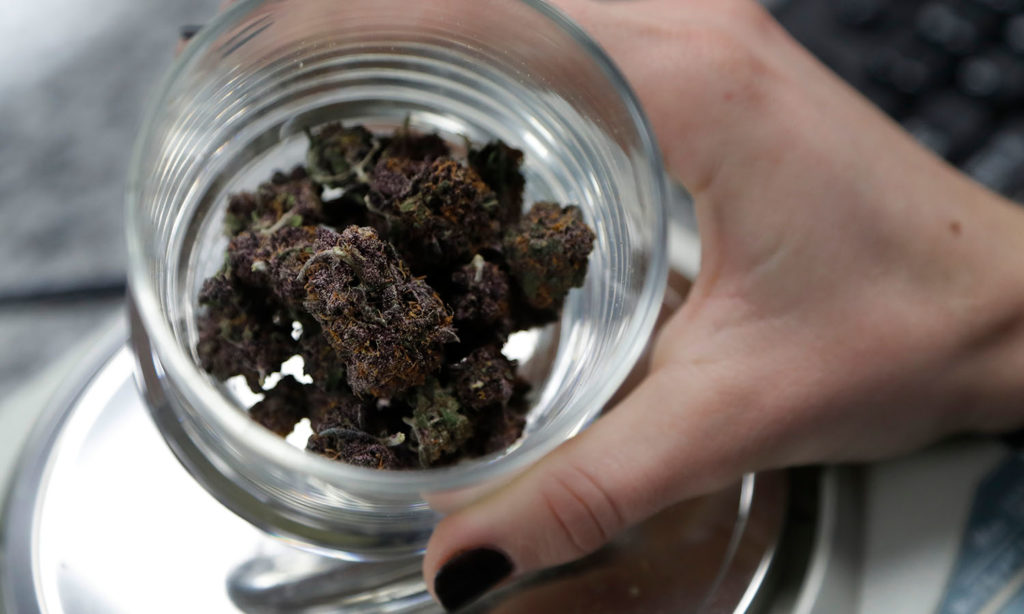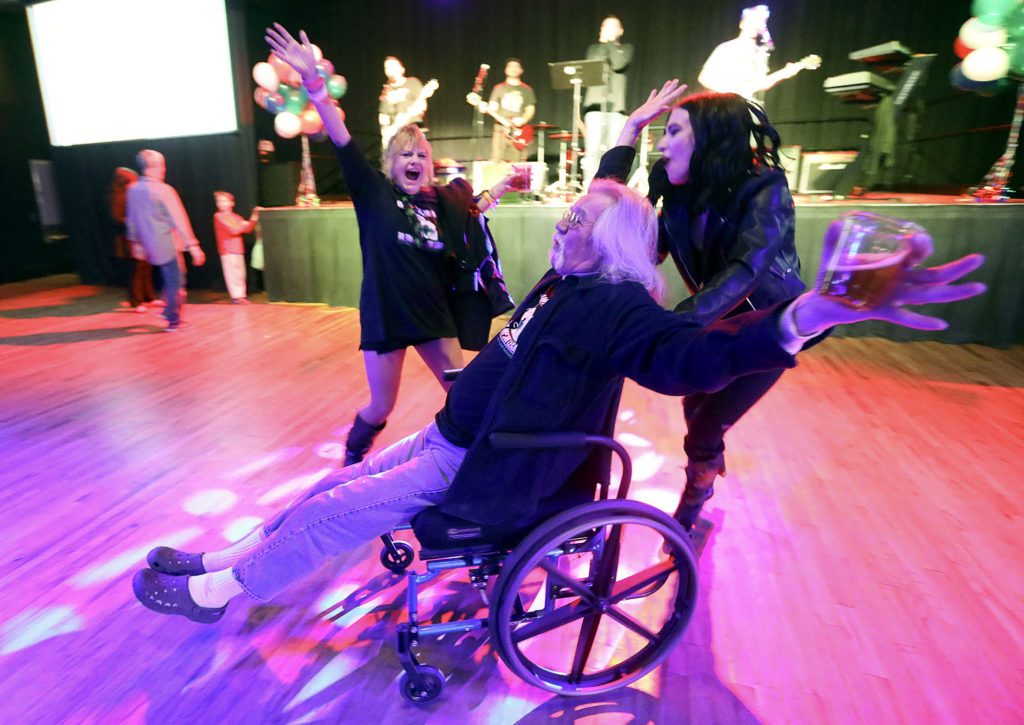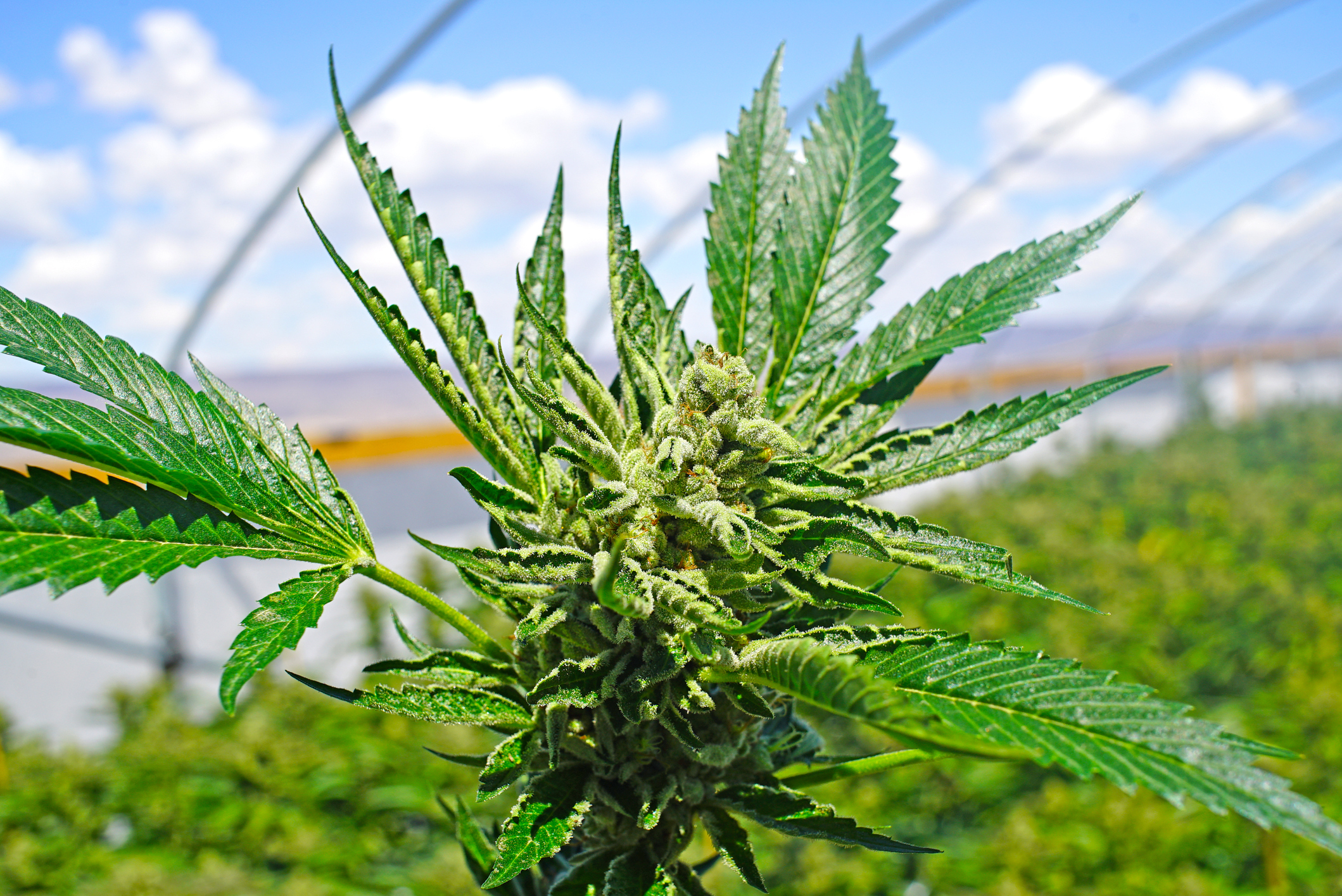By David Crary
Even in deep-red states, voters on Nov. 6, 2018 embraced an array of liberal-backed ballot measures such as expanding Medicaid, targeting gerrymandering, boosting minimum wages, and legalizing marijuana use.
The results heartened left-of-center activists, who see a path going forward for circumventing Republican-controlled legislatures. With the new Congress deeply split along partisan lines — Republicans gaining seats in the Senate, while Democrats taking control of the House since losing it in 2010 — the outcome ensured that the states will serve as pivotal battlegrounds for social issues heading toward the next election in 2020.

“We did it!” yelled Shawn McDonald, center, as he celebrates with Teisha Martinez, left, and Aubrey Taylor after Utah’s medical cannabis legalization initiative, Proposition 2, was approved. The legalization’s Nov. 6, 2018, election night party was at the Infinity Event Center in Salt Lake City, Utah. (The Deseret News via The Associated Press/Kristin Murphy)
One of the strongest messages emerging from the results is that voters are eager to make the political process, including voting itself, fairer, and more accessible.
Michigan, Missouri, and Colorado approved changes in redistricting policy aimed at reducing partisan gerrymandering through the use of independent map-drawers. A similar measure in Utah was leading in partial returns.
Voters in Michigan, Maryland, and Nevada supported measures calling for automatic or same-day voter registration. Several states approved new oversight of politicians’ ethics. And in Florida, there was decisive approval of a measure that will enable an estimated 1.4 million people with prior felony convictions to regain their voting rights.
“We see strong support for these initiatives from independents, Democrats and Republicans,” said Karen Hobert Flynn, president of Common Cause. “The question is whether incumbent officials will wake up to understand that people really do want democracy and that power belongs to the people.”

A person holds a container with marijuana buds at the Far West Holistic Center in Detroit on Nov. 7, 2018, one day after Michigan passed a measure to allow sales and use of cannabis for adults. Michigan has allowed medical marijuana since 2008. (Associated Press/Carlos Osorio)
Other notable results
- Michigan voters approved legalization of marijuana for recreational use, making it the first Midwestern state to do so. North Dakota rejected a similar measure, while Missouri voters backed legalization of medical marijuana.
- Louisiana voters overwhelmingly approved making a unanimous jury a requirement for convictions, scrapping a law dating from the era of racial segregation that allowed for split juries.
Featured Image: Howard “Cowboy” Wooldrige, a retired police detective for Bath Township, Michigan, awaited results for Michigan’s adult-use marijuana legalization initiative Nov. 6, 2018, at the Coalition to Regulate Marijuana Like Alcohol’s public watch party in Lansing, the state capital. Michiganders became the first Midwesterners to legalize marijuana for recreational use. Nine other U.S. states and Washington, D.C., allow adult-use marijuana. (The Grand Rapids Press via The Associated Press/Cory Morse)















